 Projects Grow Here. Connecting researchers in the social sciences.
Projects Grow Here. Connecting researchers in the social sciences.SSRI is dedicated to facilitating research and helping social scientists thrive in their intellectual endeavors.
Grants Awarded in 2023
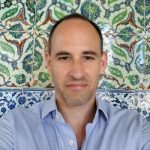
“The Cold War Origins of Egypt’s Contemporary Food Crisis”
Adam Mestyan, Department of History
In 2022, Egypt faced a serious food security crisis when the Russian war on Ukraine started. It turned out that Egypt, once the breadbasket of the Mediterranean, was fully dependent on Ukrainian and Russian grain for its population. Why and when exactly did Egypt become so unable to feed its own people? Which year exactly in the Cold War was the “breaking point” between the domestic grain supply and the growing population?
 “Power and Persistence at the Birth of the Modern Economy”
“Power and Persistence at the Birth of the Modern Economy”
Adriane Fresh, Department of Political Science
When do political elites persist power despite structural economic change? Under what conditions do they capture change for their benefit, and under what conditions are they circulated away from power? Given the role of political power in shaping the economy, why elites would ever fail to capture change for their benefit is puzzling, and yet elite turnover seems prima facie common. I study these questions in the context of historical Britain during one of the most important periods of structural economic change: the 16th an 17th century rise of early modern capitalism. My book project develops a new theory elaborating the conditions under which elite capture and turnover take place. Then, using comprehensive data on the individual characteristics of the universe of parliamentary elites spanning two centuries, I evaluate the emergence of economic cleavages, competition for political power, the strategies of elite insulation in power, and ultimately how processes of persistence and turnover took place.
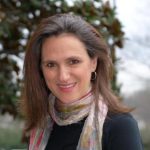 “Risk and Resilience in Ukraine: Individual, Family, and Community Predictors of Adolescent and Young Adult Adjustment”
“Risk and Resilience in Ukraine: Individual, Family, and Community Predictors of Adolescent and Young Adult Adjustment”
Ann Skinner, Sanford School of Public Policy
This seed project will study predictors and profiles of risk and resilience among adolescents and young adults and their parents during a military invasion in four regions of Ukraine. We will: 1) Investigate factors associated with post-traumatic stress and growth including individual characteristics (e.g., hope, optimism, nationalism), family characteristics (e.g., parental adjustment), and community characteristics (e.g., number of missile siren warnings); 2) Re-interview past participants to examine longitudinal predictors of adjustment changes over time. 3) Determine the feasibility of collecting biological data (hair samples) from a subsample of youth participants to examine stress markers (e.g., cortisol levels).
 “Broad vs. Deep Connections: When Does Intergroup Contact Have Generalized Effects?”
“Broad vs. Deep Connections: When Does Intergroup Contact Have Generalized Effects?”
Arkadev Ghosh, Department of Economics
Existing intergroup contact interventions involve sustained interactions with a fixed set of outgroup individuals. A common finding is that such contact changes behavior toward the individuals interacted with, but not toward the wider outgroup. We will test whether an alternative type of contact causes more generalized effects: briefer contact with a rotating cast of outgroup members. We will recruit young Hindu and Muslim men to work on manufacturing tasks in West Bengal, India. We will randomize each participant to (1) be paired with an outgroup or ingroup member, and (2) have their partner change everyday or stay the same.
 “Rethinking the Informal Economy in Africa”
“Rethinking the Informal Economy in Africa”
Charles Piot, Department of Cultural Anthropology
An economist colleague and I are collaborating on a project on African informal economies that is at an early stage of development. Through this colleague’s contacts in African development- he worked for the IMF for many years and is now a visiting scholar at Duke–we were given access to a large database of informal enterprises in Kenya, Nigeria and Ghana, and have conducted surveys and run regression analyses of 500 informal businesses in each country. Our findings contradict those in much of the literature on informality, and we now want to further test them through qualitative interviews in the informal markets of Lome, Togo, where I have conducted anthropological research for many years.
 “Research on the Consequences of Mass Incarceration”
“Research on the Consequences of Mass Incarceration”
Christopher Wildeman, Department of Sociology
Research on the social consequences of mass incarceration is critical to social-scientific understandings of labor market, health, and family outcomes; yet it is severely hampered by an inability to differentiate between the effects of jail and prison incarceration. Our project addresses this long-standing research gap by producing a new variable in the National Longitudinal Study of Youth 1979 (NLSY79) that will allow researchers to differentiate prison incarceration from jail incarceration for the Hirst time and will also make it possible to assess whether ethno-racial and gender differences in the exposure to jails and prisons contribute to social inequality more broadly.
 “Laying the Foundation for Environmental Peacebuilding: Assessing Scientific and Environmental Cooperation during and after the Cold War”
“Laying the Foundation for Environmental Peacebuilding: Assessing Scientific and Environmental Cooperation during and after the Cold War”
Erika Weinthal, Nicholas School of the Environment
This project examines environmental peacebuilding and science diplomacy efforts during the Cold War and afterwards that sought to bring adversaries together to enhance security and build political cooperation The project asks: 1) did donors have a theory of change for how environmental programming could further trust and cooperation, foster environmental sustainability, and build a vibrant civil society in countries moving away from authoritarianism and 2) why were some programs more successful than others? The project seeks to carry out interviews with donors and the NGOs and scientists that received funding along with examining archival material in the Hoover Institution.
 “Expats: Discourses of Privilege and Precarity Among Migrants from the Global North”
“Expats: Discourses of Privilege and Precarity Among Migrants from the Global North”
Gareth Price, Program in Linguistics
Migrants from the global north – conventionally, though problematically, called “expatriates” – occupy a privileged position in the broader scheme of international migration, due to their relative affluence and rationales and capacities for migrating, further shaped by bordering regimes that render certain migrants as desirable in and for national projects of modernity. Nonetheless, material challenges and personal precarity may drive northern migration in fundamental ways, destabilizing the idealized notion of the unfettered, cosmopolitan expatriate. How does privilege socio-politically intersect with precarity for these migrants, and how do they navigate, contest, and resist privilege and precarity through spoken and social media interactions?
 “The Interplay Between Race and Law Through Educational Programming, Knowledge Production, and Community Engagement”
“The Interplay Between Race and Law Through Educational Programming, Knowledge Production, and Community Engagement”
Geovanny E. Martinez, School of Law
CLRP plans to host a series of events in the 2023-2024 academic year focused on the potential effects of generative artificial intelligence (“AI”) on marginalized groups. The series would culminate with a symposium providing an opportunity for our panelists and others to contribute written works related to the topic. The series would feature a diverse and interdisciplinary panel of scholars and in-field experts and would touch on the intersection between AI and journalism, criminal justice, criminal sentencing, employment, immigration, privacy, and policing, among other areas.
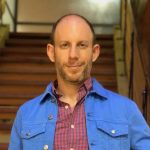 “Distressed Medicine: Healthcare Work, COVID-19, and the Future of Care”
“Distressed Medicine: Healthcare Work, COVID-19, and the Future of Care”
Harris S. Solomon, Department of Cultural Anthropology
How has healthcare work transformed during COVID-19, and what do these changes suggest about the future of medicine? We seek SSRI support to complete the writing of a book entitled Distressed Medicine. It will be the first book-length ethnography of an ICU’s tragedies and triumphs during the pandemic. The book stems from a collaborative study from 2020-2022 by our team of three critical care physicians and a medical anthropologist. Distressed Medicine is written accessibly for a broad audience of medical, public health, and social science researchers and students. It charts the personal stories behind changes to workforce staffing, labor conditions, unequal risk exposures, impacts on training, and healthcare workers’ interface with patients and families. Funds will support staff time for writing and transcription of a small number of remaining interviews to bring the research up to date in 2024. This endeavor will also advance collaborations between the School of Medicine and the campus centered on the ethnography of healthcare.
 “Forging a Philosophy of Health: Lessons from South Africa”
“Forging a Philosophy of Health: Lessons from South Africa”
Karin Shapiro, Department of African & African American Studies
This documentary explores the impact of South African community healthcare practices in post-World War II North Carolina. In the 1940s/50s, the development of biomedicine and NIH funding led many to argue that illness should be tackled at the individual, biological level. “Social medics” coming from rural KwaZulu/Natal brought an alternate framework, with a focus on the social/environmental impacts on health along with concerns for the marginalized. President Johnson’s War on Poverty gave greater urgency to scholars who emphasized a community and sociological approach to healthcare. Several South African practitioners took up this challenge, transforming social epidemiology in the process.
 “Towards Health Equity for Sickle Cell Patients in Uganda: A Delphi Survey”
“Towards Health Equity for Sickle Cell Patients in Uganda: A Delphi Survey”
Kearsley Stewart, Duke Global Health Institute
Uganda achieved remarkable success reducing mother-to-child HIV transmission to 3% and under-14 AIDS-related mortality to 5%. In contrast, Ugandan children born with sickle cell disease (SCD) suffer nearly 90% mortality by age five, a clear indication of “unfair, unjust and avoidable” health inequities. Could applying a social determinants of health and health equity lens to SCD spark a success similar to HIV in Uganda? We will conduct a Delphi Survey with Ugandan and global HIV and SCD stakeholders, convene a workshop and produce a ten-point health equity action plan to leverage Uganda’s HIV successes and move it’s SCD agenda forward.
 “Religious Change in America: Patterns, Correlates, and Reasons”
“Religious Change in America: Patterns, Correlates, and Reasons”
Lisa Keister, Department of Sociology
This project will contribute to a growing body of research on religious change in three ways. First, I will provide current estimates of the degree to which Americans are remaining affiliated, disaffiliating, and reaffiliating with the major faith groups. Second, I will explore how religious change varies by ethnicity, SES, and life course events. Finally, I will examine why individuals remain affiliated, disaffiliate, and reaffiliate. I will synthesize findings from three data sources: the 2022 General Social Survey, the 2021 Panel Study of Income Dynamics, and the American Voices Project to write three papers, a book proposal, and grant applications.
 “Advancing Peace Through Inclusive Governance and Reintegration: Evidence from Iraq”
“Advancing Peace Through Inclusive Governance and Reintegration: Evidence from Iraq”
Mara Revkin, School of Law
In ethnically and religiously divided societies with histories of armed inter-group conflict, how should policies and laws for recognition of subnational groups be designed to support sustainable peace, promote inclusive democratic governance, and prevent authoritarian backsliding? Relatedly, in the aftermath of conflict-induced displacement, can state recognition of conflict-related harms experienced by internally displaced persons and host communities support the goal of peacefully reintegrating returnees into social, economic, and political life?
 “Partisan Polarization and International Politics”
“Partisan Polarization and International Politics”
Rachel Myrick, Department of Political Science
How does polarization affect the way democracies behave in international politics? Democracies are advantaged in foreign affairs relative to non-democracies. They keep foreign policy consistent despite leadership turnover, credibly signal information to adversaries, and maintain international commitments. My book project, Partisan Polarization and International Politics, argues that extreme polarization undermines these advantages by eroding constraints that make leaders responsive to the public and accountable to the political opposition. I substantiate this argument with data on polarization and foreign policy in 55 democracies. Then, drawing on cases from contemporary US foreign policy, I examine pathways through which polarization undermines democratic advantages.
 “Cognitive Accessibility of Patient Medication Information”
“Cognitive Accessibility of Patient Medication Information”
Ruth S. Day, Department of Psychology & Neuroscience
Patients receive a leaflet with their prescription medications at the pharmacy. It contains important information, but they have trouble understanding, remembering, and using it. Technical language and demographic characteristics can be involved, but this research examines a new factor – cognitive accessibility. We have developed quantitative measures for assessing cognitive accessibility. A current FDA Proposed Rule would require a new format for pharmacy leaflets. Unfortunately, it violates many cognitive accessibility principles. How well can people understand, remember, and use information in the proposed FDA format? Can an Enhanced version (based on cognitive principles) improve comprehension, memory, and safe use of medications?
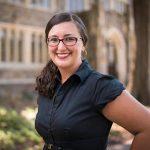 “Diversifying Developmental Science at Duke”
“Diversifying Developmental Science at Duke”
Sarah Gaither, Department of Psychology & Neuroscience
Diversifying Developmental Science at Duke” aims to make the science conducted by The Duke Child Studies Group representative of the racial and socioeconomic demographics of the region. To maintain a database of participants, we are in a trial year of a full-time recruitment coordinator to improve existing and new community partnerships while training undergraduates interested in child development and diversity issues. These efforts will ensure faculty success on pilot data collection and/or the completion of existing grants for projects focusing on Latino identity, gesture and learning, STEM identity for underrepresented groups, morality, and technology use in diverse educational settings.
 “The Impacts of Gun Shows on Children in North Carolina”
“The Impacts of Gun Shows on Children in North Carolina”
Sarah Komisarow, Sanford School of Public Policy
Firearms are the leading cause of death among children in the United States. Although public attention typically focuses on homicides and mass shootings, the impacts of firearms on children are far less studied. This project will assess the impact of one area of firearms policy that is often debated but rarely studied in relationship to children: gun shows. Using causal econometric methods, I will investigate the impacts of gun shows on the incidence of firearm events in K-12 public schools and child morbidity and mortality. This project will produce a journal article that contributes to research on the social costs of firearms.
 “How Political Events Shape Conflict Legacies’ Salience”
“How Political Events Shape Conflict Legacies’ Salience”
Shelley Liu, Sanford School of Public Policy
How do political events shape conflict legacies’ salience? While existing research focuses specifically on the effects of victimization on the victimized, little is known about war’s enduring effects on participation and attitudes across various demographics—nor how political events may exacerbate, or mute, conflict legacies. This study examines Liberia’s post-war political development after two civil wars between 1989 and 2003. I compare conflict’s influences on political participation and attitudes about politics, economy, and social cohesion during and after the 2023 elections. The study further focuses on heterogeneous effects between different demographics: (1) gender; (2) age; (3) war experiences; (4) ethnicity.
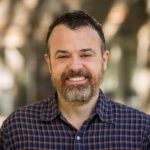 “Understanding Youth Political Socialization”
“Understanding Youth Political Socialization”
Stephen Vaisey, Department of Sociology
In an era of political polarization, understanding youth political socialization is crucial. Most political studies are of adults, whose political identities are already formed. We seek to investigate how young people learn to engage with politics in different ways. How and why do some young people form partisan identities that are important to them? What role does social background play in instigating and moderating these processes? Our larger project will ask these questions using a mixed-method approach, following a sample of 6th graders from North Carolina middle schools. This proposal is for pilot funding to develop the survey instrument and interview guide.
Testimonials
- “This grant has been instrumental in creating a research program that may lead to grant support in the future.”
- “The flexibility of funding was particularly helpful when I had the opportunity to involve undergraduate students for a paid summer research opportunity.”
- “This has facilitated my research by providing support for intervention implementation and evaluation.”
- “The funds provided by SSRI have been integral to the success this team continues to experience related to this project.”
- “The grant funding enabled the project to push forward this past academic year. I would not have had the time to work on all the details required for launching this project – IRB submission, randomization, survey questionnaire development, negotiating the details of the intervention with the electricity utility, etc. – without the course buy-out.”
- “I am just so grateful to SSRI. Those of us in the interpretive social sciences have very few avenues for pursuing funding and yet some of our methodologies are costly and require support.”
- “In the long term, this grant will further benefit my career as I practice my research skills and lead the research efforts on improving racial equity in academia.”
- “It has been essential for developing my research.”
- “I am grateful for the salary support that allowed me to devote my undivided attention to moving the project forward.”
Grants Awarded in 2022
- “The Olive Morris Project”
- “Vistas, Violence, and The Politics of Place”
- “Frontline Labor and Critical Care: An Ethnography of ICU Work During COVID-19”
- “Amazon in Durham: Race, Class, and Consumerism”
- “Investigating the evolution and influences of spending patterns among low-income mothers receiving an unconditional cash transfer”
- “A Womanist Framework for Fair Trade”
- “Mobile voting technology that uses mobile devices to cast ballots in Mali”
- “Hunting for talent: firm-driven labor market search in the United States”
- “What are the salient barriers to effective justice technology innovation within the legal industry?”
- “Black Communities and Blue Ridge Parkway Land Acquisition, 1933-1945”
- “Coping Together”
- “Understanding the development of Latino self-identification and its’ psychological consequences”
- “Supporting Children’s Mental Health in K-12 Public Schools: Adding to the Evidence-Base in North Carolina”
- “Testing whether transparency, information, and financial interventions can shift norms and reduce CO2 emissions in Pakistan”
- “Measuring German Cultural Connections in Santa Catarina, Brazil”
- “Rental Housing Sales, Racial-Ethnic Inequality in Housing Insecurity, and Educational Disadvantage”
- “Studying the effects of reminding religious people of the benevolence of God on their positive emotions (i.e., awe, hope) and well-being”
- “Resource inequality and homophily in networked collective action groups”
- “Gender Norm Violations and Race”
- “Using photovoice to explore the perceptions of “race” and “racial equity” among Duke students and Durham residents”
